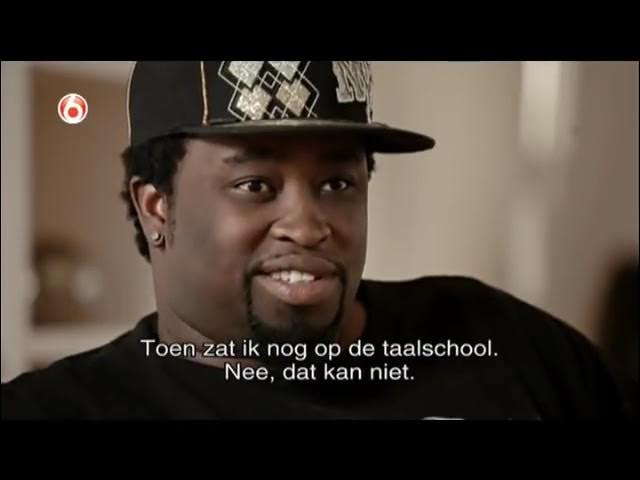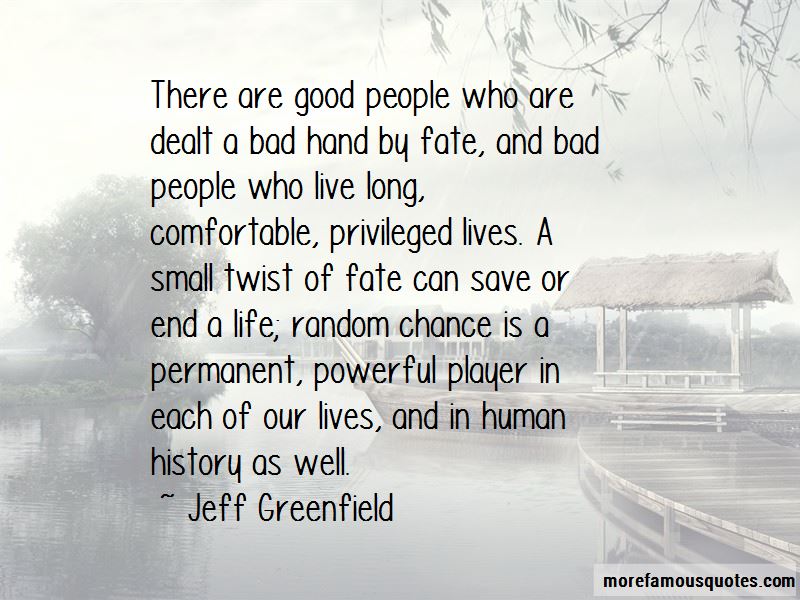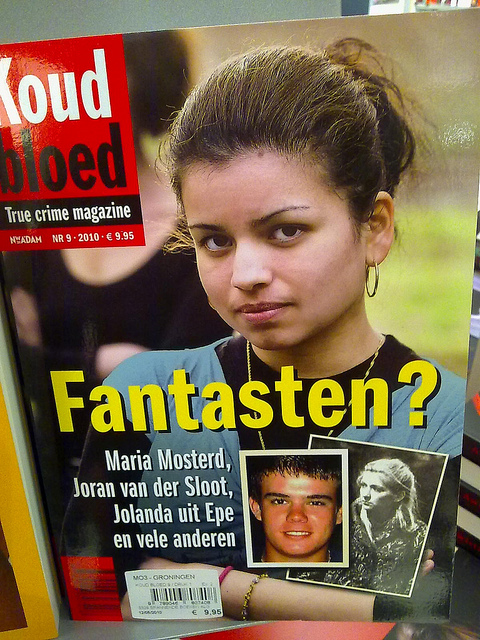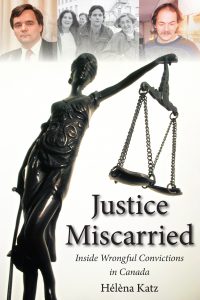
The Loverboy Manou says in the video, ‘Back then, I was still at the language school. No, that can’t be.
Page Description
Explore the controversy surrounding Maria Mosterd’s book Echte Mannen Eten Geen Kaas. Is it a true memoir or a blend of fact and fiction? Uncover the debate
The Untold Story of Maria: A Life Shattered by a Loverboy
Until her first day of high school, Maria is a very ordinary twelve-year-old girl. She lives with her mother and her sister in a town in the eastern part of the Netherlands and wants a little more excitement in her life. Or be tough like that group of boys who hang out in the school parking lot. What would it be like if one of those boys was her boyfriend? Maria’s fantasy seems to become reality: one of them, Manou, speaks to her. What she doesn’t know is that Manou is a loverboy.
Six years later, Maria writes this blood-curdling account of her years with Manou. The boys who deprived her of her normal childhood and whom most people know as “loverboys” were to her pimps, drug, gun and human traffickers. Violence, (gang) rapes, trafficking in girls, drug smuggling: Maria has experienced and seen a lot and has written an authentic and revealing story about it. She candidly tells of her conflicting feelings for Manou and her struggle to escape him: physically, but especially mentally. What Maria went through is shocking: how she looks back on it is extraordinarily moving.
Maria Mosterd (b. 1989) lives in the eastern part of the country.
‘The triptych of mother and daughter Mosterd hortily reveals a gruesome story of the trafficking of vulnerable teenage girls and the way in which such a loverboy gains and maintains power over those girls. Thanks to these books, that is now over for Maria.
Tot haar eerste dag op de middelbare school is Maria een heel gewoon twaalfjarig meisje. Ze woont met haar moeder en zusje in een stadje in het oosten van Nederland en wil wat meer spanning in haar leven. Of stoer zijn zoals dat groepje jongens dat rondhangt op de parkeerplaats van de school. Hoe zou het zijn als een van die jongens haar vriendje was? Maria’s fantasie lijkt werkelijkheid te worden: een van hen, Manou, spreekt haar aan. Wat ze niet weet is dat Manou een loverboy is.
Zes jaar later schrijft Maria dit bloedstollende verslag van haar jaren met Manou. De jongens die haar van haar normale jeugd beroofden en die de meeste mensen kennen als “loverboys” waren voor haar pooiers, drugs-, wapen- en mensenhandelaren. Geweld, (groeps)verkrachtingen, handel in meisjes, drugssmokkel: Maria heeft veel meegemaakt en gezien en heeft daar een authentiek en onthullend verhaal over geschreven. Ze vertelt openhartig over haar tegenstrijdige gevoelens voor Manou en haar strijd om aan hem te ontsnappen: lichamelijk, maar vooral geestelijk. Wat Maria heeft meegemaakt is schokkend: hoe ze erop terugkijkt is buitengewoon ontroerend.
Maria Mosterd (1989) woont in het oosten van het land.
Het drieluik van moeder en dochter Mosterd onthult op gruwelijke wijze het verhaal van de handel in kwetsbare tienermeisjes en de manier waarop zo’n loverboy macht krijgt en houdt over die meisjes. Dankzij deze boeken is dat nu voorbij voor Maria.
Vertaald met DeepL.com (gratis versie)
1 A Strange Twist: The Case of Maria Mosterd and the Alleged Loverboy
The story of Maria Mosterd, a woman who gained attention for her book Echte Nederlanders eten geen kaas, is marked by a series of unexpected turns. At the heart of her narrative is her alleged involvement with a man she claims to have been manipulated by – Manu, a so-called loverboy. As Mosterd recounts her experience, her tale becomes not only a personal reflection on manipulation and betrayal but also a broader commentary on the challenges of recognizing and confronting toxic relationships. But, as the layers of this case unfold, it becomes clear that there is far more to this story than meets the eye

Een rare kronkel
Strange
Something that is strange is unusual or unexpected, and makes you feel slightly nervous or afraid. […]
Twist
A twist in something is an unexpected and significant development. […]
Collins Dictionary
2 Struggling Like a Devil in a Holy Water Basin
The videos below illustrate the expression ‘Struggling like a devil in a holy water basin.’
The first video highlights the predicament faced by the publisher of the bestseller Echte Mannen Eten Geen Kaas by Maria Mosterd. Despite claims that the book is a true story, mounting evidence reveals otherwise, leaving the publisher in an impossible position to defend its authenticity.
A series of 13 consecutive videos showcases the growing divide between those who support the book’s claims and those who see it for what it truly is—fiction.
With hundreds of thousands of copies sold and over €1,000,000 in earnings for the publisher, the controversy surrounding the book is both significant and revealing.
The first two videos (15 and 11 minutes long) are particularly eye-opening. They bear striking similarities to the case of Diederik Stapel, the former Tilburg professor of social psychology (explored further on this website), whose groundbreaking academic fraud left an indelible mark on science.
3 How Can an Improbable Story Be an Authentic Book?
1 Dwdd 12-5-2010 Peter R. De Vries
24 okt. 2021
2 Dwwd 7-5-2010 Peter R. De Vries
23 okt. 2021

3 Slachtoffers loverboys lijden onder ophef rond Mosterd
11 mei 2010
5 ‘Loverboy Manou’: “Ik wil publieke excuses van Maria Mosterd”
17 mei 2010
Educational
6 Peter R. de Vries – Echte mannen eten geen kaas DEEL1
24 jun. 2013
7 Peter R. de Vries – Echte mannen eten geen kaas DEEL 2
25 jul. 2010
8 Peter R. de Vries – Echte mannen eten geen kaas DEEL 3
24 jun. 2013
9 Peter R. de Vries – Echte mannen eten geen kaas DEEL 4
25 jul. 2010
10 Peter R. de Vries – Echte mannen eten geen kaas DEEL 5
25 jul. 2010
11 Peter R. de Vries – Echte mannen eten geen kaas DEEL 6
25 jul. 2010
4 “Defending Truth Against Fiction: A Dialogue of the Deaf”
In court cases, it’s not uncommon to encounter senseless discussions—a true Dialogue of the Deaf. A remarkable example of this can be seen in the case of Maria Mosterd and her book Echte Nederlanders eten geen kaas. In various talk show appearances, the book’s publisher faced scrutiny from Peter R. de Vries, who investigated the facts, consulted experts, and clearly demonstrated that the book was fiction, not a “true story” as claimed.
Watching the publisher struggle to defend the book, as though wrestling with a devil in a holy water font, raises an important question: how can one effectively counter an argument rooted in “it is what it is” without abandoning their stance? This case is a vivid example of the challenges of defending truth against evasive reasoning and unfounded claims.
12 Peter R. de Vries – Echte mannen eten geen kaas DEEL 7
25 jul. 2010
13 Peter R. de Vries – Echte mannen eten geen kaas DEEL 8 (EINDE)
25 jul. 2010
“Echte Mannen Eten Geen Kaas” is a Dutch book written by Maria Mosterd, which was published in 2008. The book is a memoir that tells the story of the author’s experiences with human trafficking and exploitation as a young girl. The key points of “Echte Mannen Eten Geen Kaas” include:
Personal Narrative: The book is a first-person account of Maria Mosterd’s life, detailing her experiences from childhood to her teenage years. She shares her personal journey and the challenges she faced, including being lured into a world of exploitation and abuse by an older man.
Human Trafficking and Exploitation: Mosterd’s story sheds light on the dark reality of human trafficking and exploitation, particularly of vulnerable young girls. She shares how she was coerced, manipulated, and exploited by a man who took advantage of her innocence and naivety.
Emotional and Psychological Impact: Mosterd delves into the emotional and psychological impact of her experiences, including the trauma, shame, and guilt she felt. She discusses the challenges she faced in trying to escape her situation and the long-lasting effects it had on her mental health and well-being.
Warning Signs and Red Flags: The book highlights the warning signs and red flags of grooming and exploitation, aiming to raise awareness among readers. Mosterd shares her experiences and the tactics used by her abuser to control and manipulate her, with the goal of helping others recognize similar patterns of exploitation.
Recovery and Resilience: Despite the challenges she faced, Mosterd’s story also emphasizes resilience and the possibility of recovery. She shares her journey towards healing and rebuilding her life, including seeking support and finding her own strength to overcome her traumatic experiences.
Social and Cultural Context: “Echte Mannen Eten Geen Kaas” also touches on the social and cultural context in which Mosterd’s story unfolded. It discusses the dynamics of power, gender roles, and societal norms that contributed to her vulnerability and exploitation.
Overall, “Echte Mannen Eten Geen Kaas” is a compelling memoir that sheds light on the harsh realities of human trafficking and exploitation, while also highlighting the importance of resilience, recovery, and raising awareness about the issue.
Real men don’t eat cheese’: fiction or non-fiction?
Louis Stiller 12 mei 2010 – 12:46
Peter R. de Vries and investigative journalist Hendrik Jan Korterink are certain: ‘Real men don’t eat cheese’ by Maria Mosterd is fiction. A fascinating story, but a fictional one.
After Mosterd’s success, crime journalist Hendrik Jan Korterink went in search of the facts. He spoke to many people involved, including Maria’s two best school friends from the period in question, and also ‘loverboy Manou’ himself.
Maria’s story turned out not to be true on essential points. Her first meeting with Manou was not when she was twelve, but almost eighteen months later.
There is no indication whatsoever that Manou is or was a loverboy (and he does like cheese). The so-called permanent truancy at school has now been declared untrue by the court. Maria’s story turns out to be a bizarre mix of facts and especially a lot of fantasy. In NRC Boeken publisher Chris ten Kate of Van Gennep – publisher of Mosterd – gives his vision of this case. From page one it is clear that this is a personal story, nothing more, nothing less. The story has special value because it provides insight into the psychology of a victim, into the way girls are made dependent and brainwashed. It has been of great value in tackling the loverboy problem in schools. And that will continue to be the case anyway. Peter R. de Vries is not convinced. In his TV broadcast on Sunday, De Vries did not give much away about Mosterd’s story. “Is Maria Mosterd’s story true? Or is she only the victim of her own fantasy?
Bron: www.nrcboeken.nl/interview/als-slachtofferverhaal-blijft-dit-boek-overeind‘Echte mannen eten geen kaas’: fictie of non-fictie?
Bron: www.nrcboeken.nl/interview/als-slachtofferverhaal-blijft-dit-boek-overeind“Echte Mannen Eten Geen Kaas” is a controversial book that has been the subject of debate regarding its genre – whether it is fiction or non-fiction. While initially marketed and presented as a true story, later investigations and revelations have raised questions about its authenticity.
The author, Maria Mosterd, claimed that the book is a memoir based on her own experiences as a victim of human trafficking and sexual exploitation. She detailed her traumatic experiences, including being lured into a trafficking ring, enduring abuse, and struggling with addiction and mental health issues. The book was initially received as a non-fiction account and garnered significant attention in the Netherlands and beyond.
However, subsequent investigations and media reports have raised doubts about the accuracy of the events depicted in the book. Some inconsistencies and discrepancies have been identified, and there have been allegations that Maria Mosterd’s story may have been embellished or fabricated to some extent. Mosterd herself has admitted that some parts of the book were fictionalized for literary purposes, though she maintains that the overall story is based on her life.
As a result, “Echte Mannen Eten Geen Kaas” has been the subject of controversy and debate, with some considering it as a work of creative non-fiction, blending elements of both fact and fiction, while others view it as a fictionalized account. The book’s genre remains a topic of discussion and interpretation, and readers should approach it with critical thinking and awareness of the ongoing debate regarding its authenticity.
14 Brandpunt – Knutselen met bewijs
17 mrt. 2014
De meest opzienbarende afluisterzaken
1. De zaak Tom Poes
Het OM dacht een grote criminele drugsorganisatie op het spoor te zijn, waar onder anderen vier leden van een Apeldoornse familie bij betrokken waren. Er werd vijf jaar lang onderzoek gedaan naar de ‘drugsbende’, waarbij ook telefoontaps werden gebruikt. In het strafdossier kwam een tap te zitten waarin de hoofdverdachte zou hebben gezegd “heb je interesse in een XTC-handel”. Daarmee werd de verdenking opgeschaald van soft- naar harddrugs. Toen de hoofdverdachte volhield dat nooit te hebben gezegd, werd de oorspronkelijke audio opnieuw beluisterd. Daar bleek hij over een “S400”, een type auto, te hebben gesproken. De zeventien verdachten werden vrijgelaten en het OM niet-ontvankelijk verklaard. Voor zover bekend zijn er geen maatregelen genomen tegen de persoon die de tap verkeerd heeft uitgewerkt.
2. De zaak Baybasin
De zaak Baybasin wordt al jarenlang genoemd als het over verkeerde tapverslagen gaat. Hüseyin Baybasin is een Koerd die in 2002 veroordeeld werd tot een levenslange celstraf voor moord, gijzeling en drugshandel. Baybasin heeft altijd gezegd dat de tapverslagen waarop de veroordeling is gebaseerd zijn gemanipuleerd. Het meest genoemde voorbeeld van die vermeende manipulatie is dat de zin “you have to make him call” naar het Nederlands werd vertaald met “je moet hem koudmaken”. De advocate van Baybasin heeft een herzieningsverzoek ingediend. Op het moment wordt bekeken of er voldoende grond is om de zaak te herzien.
3. De zaak Sunny Ofehe
De Nigeriaanse milieuactivist Sunny Ofehe wordt op 22 februari 2011 door een flinke politiemacht van zijn bed gelicht in Rotterdam. Hij blijkt al een flinke tijd te worden getapt. In die taps zou bewijs zijn gevonden voor terrorisme, Ofehe zou opdracht hebben gegeven tot het saboteren van een oliepijpleiding in Nigeria. Die verdenking is gebaseerd op drie tapgesprekken, waarvan de meest cruciale slechts in samengevatte vorm in het dossier is beland. Als zijn advocaat om de audio vraagt, blijkt dat in het gesprek het woord sabotage helemaal niet valt. In december 2012 besluit het OM om de aanklacht te laten vallen, omdat ‘de verdenking is afgenomen’.
4. De Alkmaarse drugszaak
In maart 2013 neemt de rechtbank in Alkmaar een ingrijpende beslissing. Het verklaart het OM niet-ontvankelijk in een zaak tegen een vermeende drugsdealer. De 47-jarige man zou een jaar lang in harddrugs hebben gedeald in Purmerend. De zaak is grotendeels gebouwd op afgetapte gesprekken, maar de verdachte zegt dat de verslagen daarvan niet kloppen. Als de taps worden gecontroleerd blijkt dat hij gelijk heeft en dat er verschillende verslagen onjuist zijn. Het OM geeft toe dat er een fout is gemaakt. De rechtbank is vernietigend in haar oordeel: er is ‘klaarblijkelijk doelbewust’ gehandeld.
5. De Purmerlandse liquidatiezaak
Op 20 december 2011 worden twee mannen dood gevonden op aan parkeerplaats in Purmerland. Een derde slachtoffer wordt een maand later gevonden in het Noordhollandsch Kanaal. Vier verdachten zitten vast, de drievoudige liquidatie zou om drugshandel gaan. De advocaat van een van de verdachten maakt al vroeg in de zaak melding van foutieve uitwerking van tapgesprekken en ovc’s (geplaatste microfoontjes om af te luisteren). De Officier van Justitie wil in eerste instantie de audiofragmenten niet geven, maar de advocaat krijgt ze uiteindelijk toch. In december 2013 wordt besloten dat een onafhankelijke deskundige onderzoek zal doen naar de uitwerking van de gesprekken.
